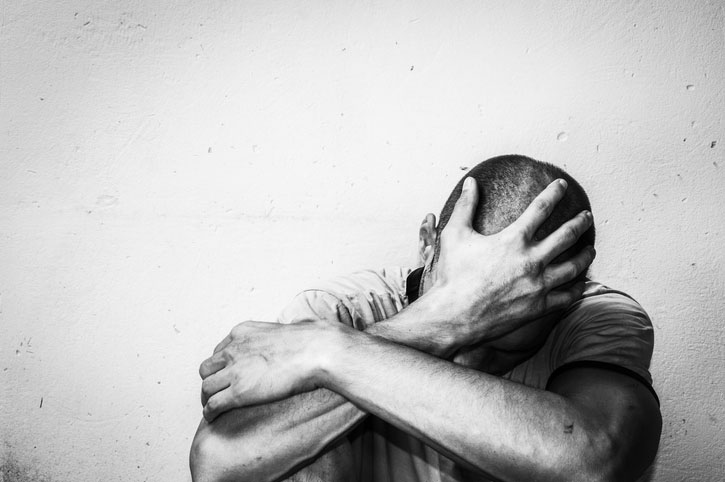Created by Illinois Social work EDU Contributing Writer

Across Illinois, social work professionals collaborate with community advocates, legislators, and the judicial system to offer positive change for people with mental health illnesses and substance abuse disorders. Qualified professionals with the requisite compassion and expertise are necessary for effectively serving this specialized clientele.
Illinois by the Numbers
- From 2017 to 2019, an annual average of 98,000 youth aged twelve to seventeen used alcohol for the first time in their lives.
- In Illinois, an annual average of 6.7% of youth aged twelve to seventeen used Marijuana for the first time in their lives between 2017 and 2019.
- During 2016–2019, the annual average prevalence of past-year Major Depressive Episodes (MDE) in Illinois was approximately 145,000 youth between the ages of twelve and seventeen.
- Among young adults aged eighteen to twenty-five in Illinois, the annual average percentage with serious thoughts of suicide in the past year increased between 2008–2010 and 2017–2019.
- Similar to the national average, Illinois’ annual average prevalence of past-year serious thoughts of suicide in Illinois was 11.1% (or 145,000 patients).
- The total number of deaths in Illinois of any drug (including alcohol and opioids) was 3,916 people in 2022.
- 227 people under the age of twenty-five died due to overdose in 2022.
- 876 people aged fifty-five to sixty-four died due to overdose in 2022.
- Intentional self-harm (suicide) was the 13th leading cause of death in 2022, more than homicide. 1,548 Illinoisans died due to self-harm.
Sourced from Illinois’ Behavioral Health Barometer and Illinois Department of Public Health (IDPH).
What Do Social Workers Do For People With Mental Health Issues and Substance Abuse Disorders?

Social workers are at the forefront of mental health and substance abuse disorder care. Case managers refer clients to appropriate programs. Qualified providers may diagnose and treat patients. These professionals work in schools, community centers, crisis hotlines, and support groups.
Here are some of the ways in which social work professionals in Illinois help their clients:


School-based Mental Health Services
Collaboration is key to mental health efforts within the community. Social workers play integral roles in school-based mental health services. They work with teachers, administrators, families, and community partners to address the psychosocial needs of students. Qualified providers provide counseling and crisis intervention.
Mental Health Clinics and Treatment Centers
Social workers often refer clients to mental health clinics and treatment centers that provide comprehensive assessment, therapy, and psychiatric services. Qualified providers also work at these facilities. Alongside medical doctors, LCSWs (Licensed Clinical Social Workers) are often the professionals diagnosing and treating patients for mental health issues. Mental health clinics and substance abuse treatment facilities may offer individual therapy, group therapy, mindfulness strategies, medication management, and other evidence-based interventions tailored to clients’ specific needs.
Community Mental Health Centers (CMHCs)
CMHCs offer outpatient care, 24 hour-a-day emergency care services, day treatment, and other partial hospitalization services, or psychosocial rehabilitation services and screening for patients being considered for admission to State mental health facilities to determine the appropriateness of such admission. Social workers commonly refer clients to CMHCs. Private and nonprofit facilities often employ qualified social workers too.
Support Groups and Peer-Led Initiatives
Qualified providers may refer clients to Illinois’ chapter of the National Alliance on Mental Illness (NAMI) or facilitate local support groups in the community, providing emotional support, coping skills, and mutual assistance for individuals facing similar mental health challenges. These groups offer empowerment in a supportive environment.
Telehealth and Online Counseling Services
Social workers increasingly utilize tele-therapy platforms and online counseling services to deliver mental health interventions remotely. These services offer accessibility to disabled clients and those struggling to find transportation or childcare.
Rehabilitation and Recovery Programs
Case managers collaborate with programs in the community that focus on individuals’ quality of life, health, and independence. These programs may include vocational training, life skills training, self-care training, employment opportunities, parenting classes, and housing programs designed to facilitate community integration and recovery.
Crisis Intervention Services
Crisis intervention hotlines provide immediate assistance and support to individuals experiencing mental health and substance abuse crises. These services offer de-escalation techniques, safety planning, and referrals to medical facilities and community programs. Social workers may work at crisis hotlines or work in collaboration with them.
Psychiatric Hospitals and Inpatient Facilities
In cases of severe mental illness or substance abuse crisis situations, social workers may coordinate admissions to hospitals or inpatient rehab facilities for monitored intensive treatment. These facilities provide round-the-clock care. LCSWs may even diagnose and treat patients at certain inpatient facilities.
Illinois Mental Health and Substance Abuse Disorder Initiatives & Programs

Illinois Mental Health Task Force (IMHTF)
Since its inception in 2019, the Illinois Mental Health Task Force (IMHTF) has set out to improve the Justice System’s response to mental illness and co-occurring disorders. The IMHTF Action Plan brings communities together to communicate, collaborate, and improve public health and safety. Illinois courts can implement change based on recommendations and resources developed by the IMHTF. The goal is to reduce jail time, prevent recidivism, and provide community resources for people struggling with mental health illnesses and substance abuse disorders.
Substance Use Prevention and Recovery (SUPR)
The Department of Human Services, Division of Alcoholism and Substance Abuse (DASA) coordinates efforts to help both adults and children dealing with substance abuse issues. DASA oversees the Division of Substance Use Prevention and Recovery (SUPR), whose mission is “to provide a recovery-oriented system of care along the continuum of prevention, intervention, treatment and recovery support with Substance Use Disorder (SUD)” and that “those in recovery and those at risk are valued and treated with dignity.”
Children’s Behavioral Health Transformation Initiative
Social work professionals also work with the Children’s Behavioral Health Transformation Initiative, announced by Governor Pritzker in 2022. The initiative represents a collaborative, multi-agency effort and delivers evidence-driven solutions to improve the quality of life for youth with mental health issues.
BEACON
In January 2024, Governor Pritzker announced a statewide initiative with Google to improve access to children’s behavioral healthcare resources, creating BEACON (Behavioral Health Care and Ongoing Navigation). BEACON hopes to provide a secure service access portal for Illinois youth that will streamline a centralized point of access to the Department of Human Services (DHS), the Department of Healthcare and Family Services (HFS), the Department of Children and Family Services (DCFS), the Department of Juvenile Justice (DJJ), the Department of Public Health (DPH), and the Illinois State Board of Education (ISBE).
“We are doing away with decentralized, difficult-to-navigate behavioral health resources scattered across different agencies, providers, and websites,” said Governor JB Pritzker. “Instead, families will have a modern, easy-to-use online system to guide them through the behavioral health universe. This is another example of Illinois leading the way — to mobilize public-private partnerships and couple ingenuity with empathy.”
Via BEACON, Illinois hopes to accomplish the following goals by the Children’s Behavioral Health Transformation Initiative:
- Streamline processes to make it easier for youth and families to access services,
- Adjust capacity to ensure the right resources are available to youth in need,
- Intervene earlier to prevent crises from developing,
- Increase accountability to ensure the state has a transparent system, and
- Develop agility so that the system can adjust to meet the evolving needs of youth.
Hear to Hear You
In Cook County, the “Here to Hear You” campaign was launched in conjunction with NAMI of Chicago to help support Illinoisans’ mental health. “Here to Hear You” set out to remove the stigmas associated with identifying and seeking care for mental health issues and connect Cook County residents to community-based organizations that focus on mental health services, support, and treatment.
Examples of Mental Health and Substance Abuse Resources in the Prairie State

Across the state, there are resources for people living with mental health issues and substance abuse. Here are a few programs available:
National Alliance on Mental Illness (NAMI) Chicago offers support groups and educational programs to individuals and families affected by mental illness.
Thresholds works toward breaking the cycle of poverty and unemployment for people living with mental illnesses and substance abuse disorders.
Chicago Therapy Collective counsels individuals, couples, and families in a culturally sensitive and LGBTQ+-affirming atmosphere.
Illinois Helpline for Opioids and Other Substances provides free, confidential support and referrals with individuals struggling with substance abuse or addiction.
Rosecrance is a behavioral health organization that provides a continuum of care, including detoxification, residential treatment, and outpatient programs.
Stepping Stones Treatment Centers provide substance abuse treatment at multiple locations across Illinois. They also offer sober living environments and specialized services for individuals with co-occurring disorders.
Illinois’ Requirements to Become a Mental Health and Substance Abuse Social Worker
Becoming a mental health and substance abuse social worker in Illinois often starts with a bachelor’s degree in social work (BSW), but ultimately requires a master’s degree in social work (MSW) from an accredited institution. An MSW along with relevant specialized field experience will meet the requirements for licensor in clinical social work.
You can find MSW programs that are accredited by the Council on Social Work Education (CSWE) in its directory of accredited programs.
Licensure
Qualifying for licensure all starts with the right education coupled with gaining field experience hours.
There are two levels of licensure:
- Licensed Social Worker (LSW)
- Licensed Clinical Social Worker (LCSW)
There are different requirements to become an LSW versus LCSW. Both can support your social work career goals, but an LCSW will expand your scope of practice.
LCSWs can usually diagnose and treat mental health disorders. LSWs can typically work in most places that LCSWs can but not necessarily in private practice. LSW licensure reduces the scope of practice a social worker can cover versus LCSW licensure.
Discover more about other social work specializations in Illinois.
2022 US Bureau of Labor Statistics job market trends and salary figures for child, family, and school social workers, healthcare social workers, mental health and substance abuse social workers, and social workers (all others) are based on national data, not school-specific information.
Conditions in your area may vary. Data accessed March 2024.





